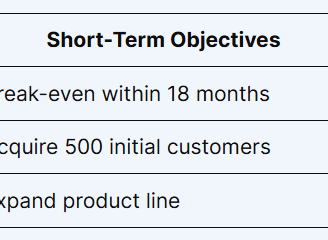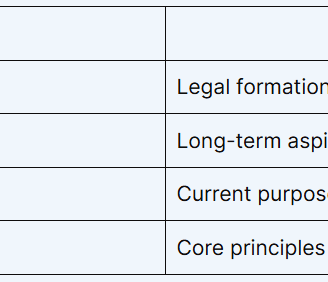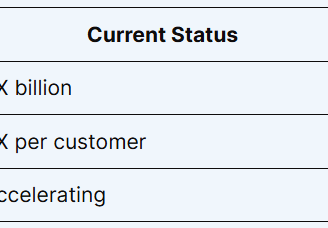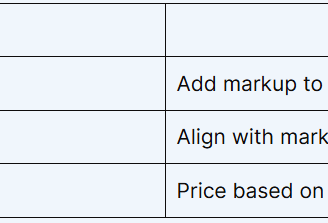How to Write a Business Plan: Step-by-Step Guide
Starting a successful business is more than just a good idea. A detailed business plan is your guide to success. It helps whether you need investor money or want to grow your company. A well-made plan turns your dream into a clear strategy.
BUSINESS TIPS
1/28/20256 min read


Business plans are key documents that share your company's main goals, money forecasts, and plans. They are powerful tools for entrepreneurs. They help prove your business idea, attract investors, and show a clear path in tough markets.
Making a good business plan is more than just writing. It's about creating a living strategy for your startup. Each part, from market analysis to financial forecasts, is important. They show your business's potential and if it can work.
Key Takeaways
A business plan is essential for mapping out your entrepreneurial journey
Comprehensive plans increase chances of startup success
Investors rely on detailed business plans for funding decisions
Business plans help identify potential challenges and opportunities
Regularly updating your plan keeps your strategy flexible and relevant
Understanding Business Plan Fundamentals
Creating a business plan is key for entrepreneurs aiming for success. It's a roadmap that guides companies through growth, helping them face challenges and seize opportunities.
What is a Business Plan?
A business plan outlines a company's main goals, strategies, and financial outlook. It's a blueprint for success, showing a clear path to reach goals. Entrepreneurs with solid plans are 16% more likely to succeed.
Why You Need a Business Plan
Business planning is vital. Companies with a plan grow 30% faster than those without. They're also more likely to get funding, have a clear direction, and make better decisions.
30% faster growth compared to businesses without a plan
Increased likelihood of securing funding
Clear strategic direction
Better decision-making framework


Business Plan for Beginners: Getting Started
Starting a business needs a strong foundation. Making a business plan template is your first big step. This document is like a roadmap that turns your business dream into a real plan.
Starting your business planning journey means understanding key parts of your business plan. Here are the main things to include:
Executive summary that shows your main business idea
Detailed company description
Comprehensive market analysis
Overview of your business's structure
Details about your products and services
Strategies for marketing and sales
Financial projections
Validating your business idea needs careful research and smart thinking. Investors and lenders look closely at business plans to see if they can succeed. A good plan shows you know the market, finances, and growth chances.
Important things to think about when making your business plan include:
Do deep market research
Know your target audience well
Study your competitors
Set clear financial goals
Make realistic money projections
Remember, your business plan is not set in stone. Update it often to keep up with market changes and your business's growth. Get feedback from mentors, experts, and investors to make your plan better.
Creating a Compelling Executive Summary
An executive summary is the first part of your business plan. It captures your entrepreneurial vision in a short, powerful way. It's crucial because it can grab investor interest or lose it.
Writing a good executive summary needs careful thought and precision. Investors usually only glance at this section. So, every word is important.
Mission and Vision Statements: Your Business DNA
A mission statement tells what your company is about. A vision statement talks about what you hope to achieve in the future. These statements show the heart of your business plan.
Mission statement: Explains current organizational purpose
Vision statement: Describes future strategic goals
Both statements should be clear, inspiring, and actionable
Business Goals and Objectives
Writing a good executive summary means having clear goals. Investors want to see specific, measurable targets.


Company Overview
Your company overview should give a quick look at what makes your business special. Talk about your team, their skills, and what makes your venture unique.
Keep in mind, a great executive summary is usually one to two pages long. Write it last, after you've finished your business plan. This ensures it's accurate and covers everyth
Developing Your Company Description
Creating a great company description is key for investors and stakeholders. It gives a detailed look at your business, showing what makes it unique and its vision. A well-written description is the heart of your business plan, sharing your company's true essence.
Your company profile should cover important points that show your business's potential and purpose. The Small Business Administration suggests including key elements that clearly show what your venture is about.
Core Components of a Company Description
Business structure (LLC, corporation, partnership)
Industry positioning
Company mission and vision
Value proposition
Short and long-term objectives
When you're building your business model, focus on how you solve market problems. Explain how your brand values set you apart from others and connect with customers.


Conducting Market Analysis and Research
Market research is key to a successful business plan. It helps entrepreneurs understand the market deeply. This way, they can make better decisions and avoid risks.
Knowing your market is more than just looking at the surface. It's about diving deep into all parts of your business world.
Target Market Identification
Finding your target market means looking into many details. You need to understand:
Age range and gender distribution
Income levels and how much people can spend
Where people live
What they like to buy and why
What they do in their free time and what motivates them
Competitor Analysis
Doing a good competitive analysis is very important. It helps you see where you stand in the market. Look into:
Who your direct and indirect competitors are
How big their share of the market is
What they're good at and what they're not
How they price their products
How they market themselves
Industry Trends and Opportunities


By carefully looking at market research, competitors, and trends, businesses can make smart plans. They can use chances and avoid problems.
Outlining Products and Services
It's key to clearly define your products and services. This shows investors and stakeholders what makes your business stand out. It gives them a full picture of your business's unique value
When writing about your products, focus on the benefits they offer. Explain how they solve problems for your target customers.
Describe core product features
Highlight unique selling points
Explain customer problems solved
Demonstrate market differentiation
Your service offerings should show off your expertise and new ideas. Investors want to see how you provide great value.
Share details about any unique technology or patents you have. This shows you're committed to innovation and staying ahead in the market.
Creating Marketing and Sales Strategies
Creating a strong marketing plan and sales strategy is key to success. It shows how well you can find and sell to customers. Your strategy should match your business goals and understand the market.
Marketing Channels and Tactics
Good marketing uses many channels. Here are some main tactics:
Digital marketing (social media, email campaigns)
Content marketing (blogs, videos, podcasts)
Referral programs
Public relations initiatives
Networking events
Sales Process and Goals
Your sales strategy should have clear goals. It should show how to turn leads into customers. This includes:
Specific sales targets
Customer acquisition process
Sales performance metrics
Pricing Strategy
A good pricing model is vital for standing out. Look at what competitors charge and show why your price is worth it.


Your marketing plan should be adaptable. Make changes based on how well it works and market shifts. The goal is to attract customers and build lasting relationships.
Financial Planning and Projections
Creating accurate financial projections is key to a strong business strategy. It helps entrepreneurs see how their business might do financially. This knowledge guides them in making smart choices.
Good financial planning includes several important parts:
Sales forecast development
Expense budget allocation
Profit and loss prediction
Cash flow management strategies
Break-even analysis is vital for knowing if your business can stay afloat. It shows when your income equals your expenses. This helps you understand when you might start making a profit.
Important parts of financial projections are:
Income Statement - Revenue and expenditure tracking (1-3 years)
Cash Flow Statement - Liquidity and financial stability (Annual)
Balance Sheet - Overall financial health snapshot (Quarterly/Annually)
Investors and lenders look at these projections to judge your business's potential. Making realistic, data-based financial forecasts shows you're strategic and serious about money management.
Businesses usually plan financially for one to five years. They update these plans every year to keep up with market changes and growth.
Conclusion
Creating a detailed business plan is just the start of your journey. It's important to keep checking your strategies and goals often. Your plan should be flexible, ready to change with the business world.
Implementing your plan means always watching and making changes. Entrepreneurs who see their plan as a living thing do better. They can handle problems and grab new chances.
Get advice from experts, mentors, and others in your field. They can spot things you might miss and help you think better. Your plan is a tool for growing your business, not just a piece of paper.
With a clear, realistic, and flexible plan, you're ready to attract investors and guide your team. Keep working on it, stay true to your goals, and use planning to change and grow.
TL Creative Studio
TL Creative Studio specializes in digital planners, eBooks, and PLR products, empowering entrepreneur and women to boost productivity, achieve goals, and earn from home. Your hub for planning and success!
stay updated
© 2024. All rights reserved.
